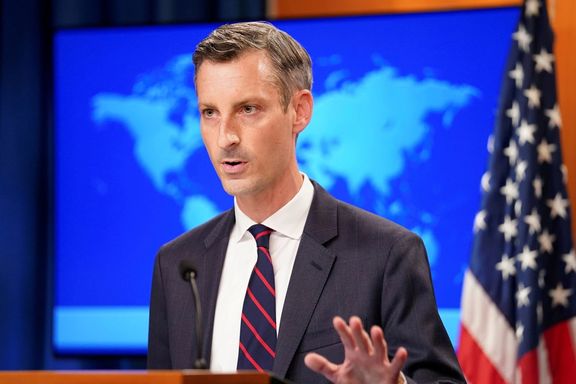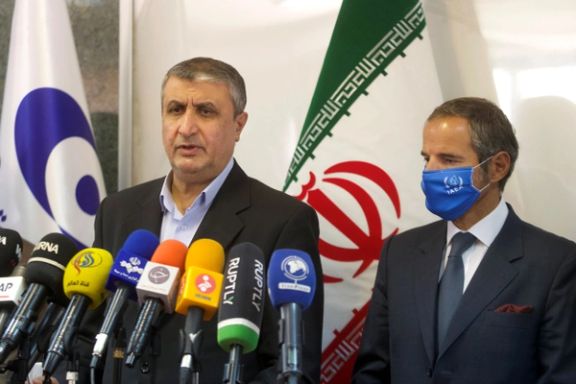US Says Silence From Tehran May Indicate No Interest In Nuclear Deal

Washington says that lack of a response from Iran on the nuclear talks is an indication that Tehran is not serious and not ready to re-enter the JCPOA.

Washington says that lack of a response from Iran on the nuclear talks is an indication that Tehran is not serious and not ready to re-enter the JCPOA.
State Department spokesperson Ned Price in his daily briefing on July 25 said, “And in fact, every day that they drag their feet or every day that is filled with nothing but silence on their end, it’s an indication to us that they are not serious and that they are not ready to re-enter the JCPOA on a mutual basis.”
The comments came one day after chief of Iran's nuclear program, Mohammad Eslami said that Tehran will not allow monitoring equipment of the International Atomic Energy Agency (IAEA) to operate until the JCPOA is restored.
At the same time, the director general of the IAEA, the UN nuclear watchdog, Rafael Grossi told the Spanish newspaper El Pais on July 22 that Iran’s nuclear program is “galloping” forward. He added that enriching uranium at 60 percent is not needed if there are no military intentions, referring to Iran accumulating highly enriched fissile material that can be elevated to weapons-grade uranium in a relatively short time.
Grossi also told CNN on Monday that Iran keeping IAEA’s inspectors away and monitoring cameras off at its nuclear installations leaves the international community blind as to what is really taking place there. “We are saying this is relevant. They have to restore all our inspection capabilities, that if they want to be trusted confidence must be there,” he told CNN and added, “In the nuclear field the only way to have confidence is to be inspected.”

Asked about Iran’s announcement that IAEA cameras will remain turned off until an agreement is reached on JCPOA, Ned Price said this was “extremely regrettable, to put it mildly.” The State Department spokesperson went on to warn that Iran’s behavior regarding inspections “only complicates the challenges associated with a potential mutual return to compliance with the JCPOA. It only deepens the nuclear crisis that Iran itself has created.”
Iran began limiting IAEA inspections and boosting uranium enrichment in early 2021, after the incoming Biden administration had clearly indicated its desire to restore the 2015 nuclear deal.
Price was also asked what Iranians want in order to accept a deal presented to them last December, which the US and its European allies say was a fair offer. He responded that he will Tehran say publicly what they demand and mentioned the possibility that the Iranians may not be planning to restore the JCPOA.
“We are clear-eyed about our Iranian interlocutors. And that’s why for some time we have been preparing equally for scenarios in which there is a mutual return to compliance with the JCPOA, and a scenario in which there is not a mutual return to compliance with the JCPOA.,” Price said.
But he reiterated the administrqation's position that it will cointinue to pursue the diplomatic path, since it believes a negotiated return to the JCPOA still is in US interest.
He also referred to President Joe Biden’s trip to the Middle East earlier this month and his discussions with Israel and other allies about threats Iran poses to the region. Biden pledged to Israel and Saudi Arabia that the United States would not allow Iran to produce nuclear weapons.
Price said that the contingency of Iran not returning to the JCPOA “was a focus of President Biden’s trip to Israel, and to Saudi Arabia, where he also had an opportunity to meet with leaders of the GCC+3. But these are discussions that we’ve been having for some time.”